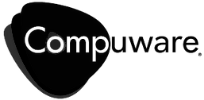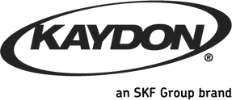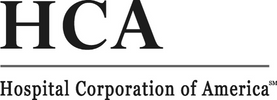
Google has posted 53 changes that effect search results to help improve and increase the quality of the websites, local listings in the search results. What is amazing about the implemented algorithm changes is that they are on the heels of two Panda updates that happened over a week and a Penguin update (I feel like I’m at the zoo!).
In case you’re wondering what these zoo animals are all about.
- Penguin Algorithm Update is about catching people who spam Google’s search results or purposely do things to rank better that are against Google’s publisher’s guidelines.
- Panda Algorithm Update(s) are about targeting low quality website’s attempting to get ranked.
Many of these changes were implemented later in April and we will not know the complete effects on rankings and search engine optimization until we interpret measurement tools like Google Analytics, Google Webmaster Tools, Internet Metrics, and Search Engine Ranking Position (SERP) reports for Keywords.
Here are the highlights of these changes. We encourage you to read through the full list of changes at Google’s official search blog.
http://insidesearch.blogspot.com/2012/05/search-quality-highlights-53-changes.html
Base Index and Index Tier
- Perhaps the biggest news is that Google has increased the size of its base index — the collection of web pages and documents it can show as search results — by 15 percent along with adding a new index tier, which Google comments, “We keep our index in tiers where different documents are indexed at different rates depending on how relevant they are likely to be to users.”
How Web Pages are Ranked and Search Results
- Improvements to how search terms are scored in ranking.
- Keyword stuffing classifier improvement related to web pages that keep finding innovative ways of stuffing keywords.
- More authoritative search results based on the relevancy of content on a web page.
- More domain diversity, which means less results from the same domain name.
Geographic Local Search Updates
These types of algorithm changes don’t happen without a change for local search results, which have been appearing before national results for the past few years.
- Improvements to local navigational searches, which Google state “we are more likely to rank the local navigational homepages in the top position, even in cases where the navigational page does not mention the location.”
The issue here goes back to businesses with local presence (meaning all businesses since all business is local) are not doing a good job engaging in Geographic Web Marketing. This includes both national companies with multiple locations.
Instead of the company determining under what circumstances their website or local listing will show, Google is going to attempt to make that decision for the business. This cannot be a very good change in the long run for businesses. Rather they need to engage in local web marketing.
- Country identification for web pages. This change extends the granularity to the page level for sites that host user generated content (e.g. social communities and forums), meaning that some pages on a particular site can be considered relevant to Germany, while others might be considered relevant to Italy.
Some Miscellaneous Updates
- Three changes implements related to freshness — fresh results and freshness signals, and one that ignores fresh content if it’s deemed low quality.
- A change that Google says will help it show more informative/concise titles in its search results. This could have an impact on the per page optimization work on your web pages.
- Improvements in how Google uses previous search activity to determine your intent as you continue to search.
Certainly if you read through the entire list of changes and then also walk through the zoo to learn more about Penguins and Pandas, you will feel a bit overwhelmed.
The interpretation of multiple data points and the effects they will have on a business is something that is part of the marketing process performed by a professional web marketing agency. This is about interpreting the information, determining the analysis of the results and implementing changes to the strategy
Article Contact
Melih Oztalay, CEO
SmartFinds Marketing
Direct: (248) 568.2241
melih@SmartFindsmarketing.com
330 East Maple Road #503, Birmingham, MI 48009
http://www.SmartFindsmarketing.com
http://www.SmartFindsgeographicmarketing.com



















